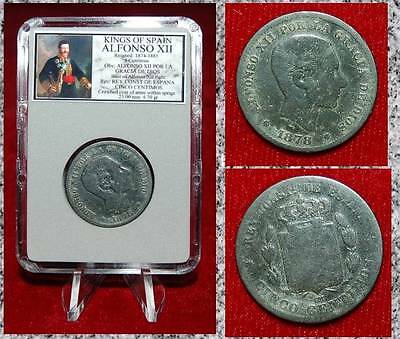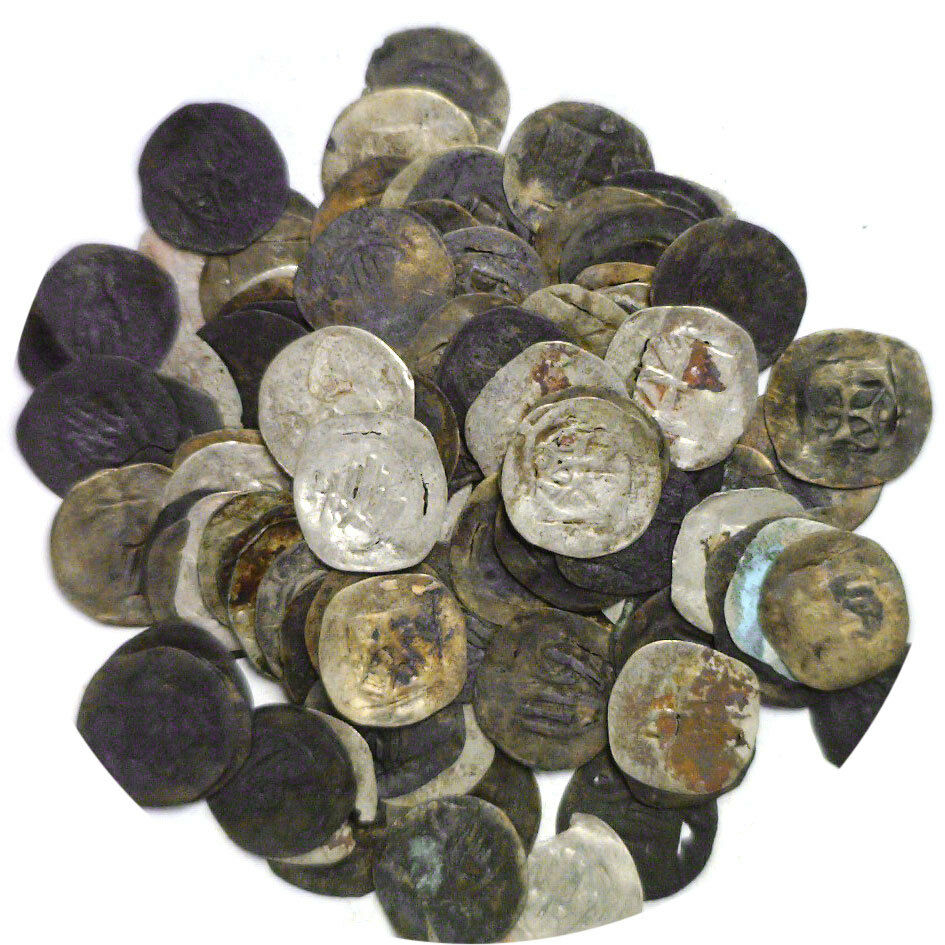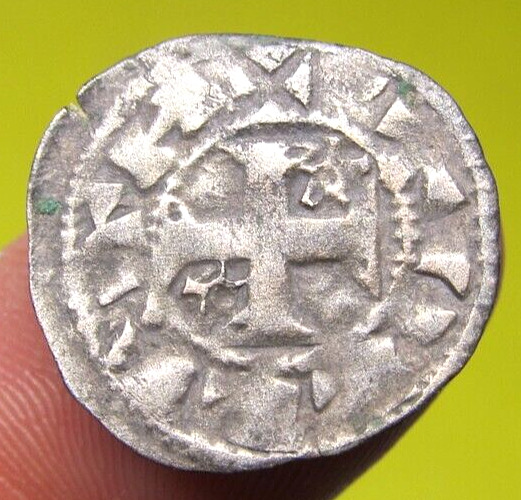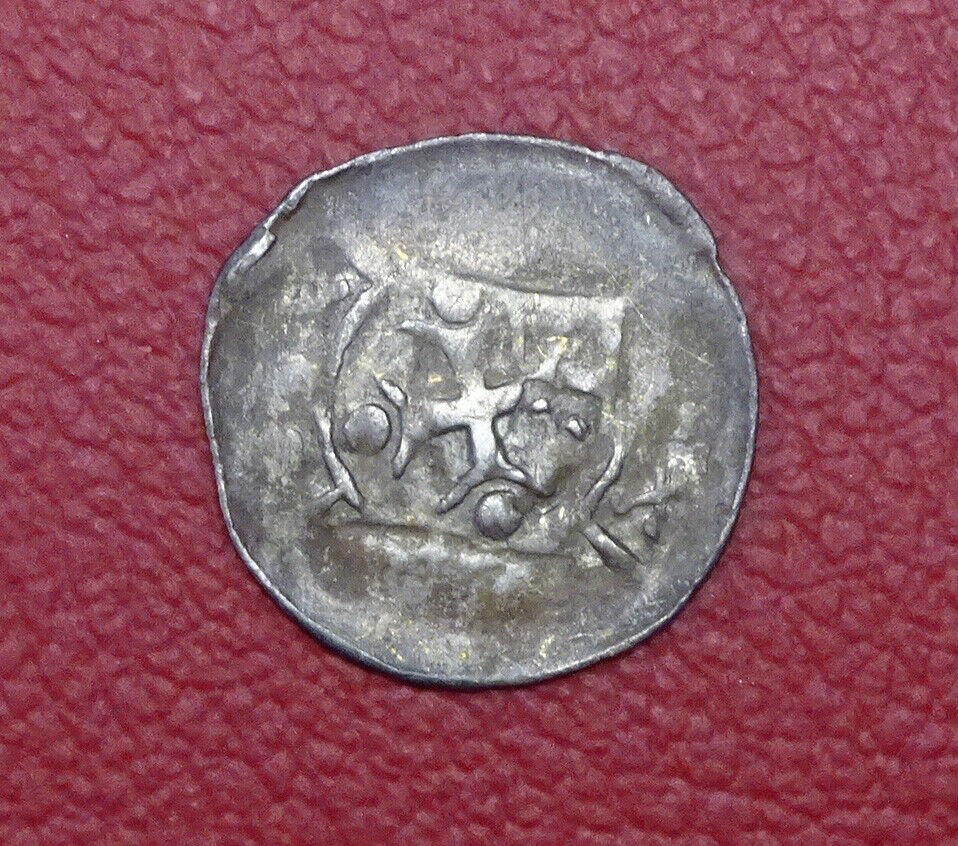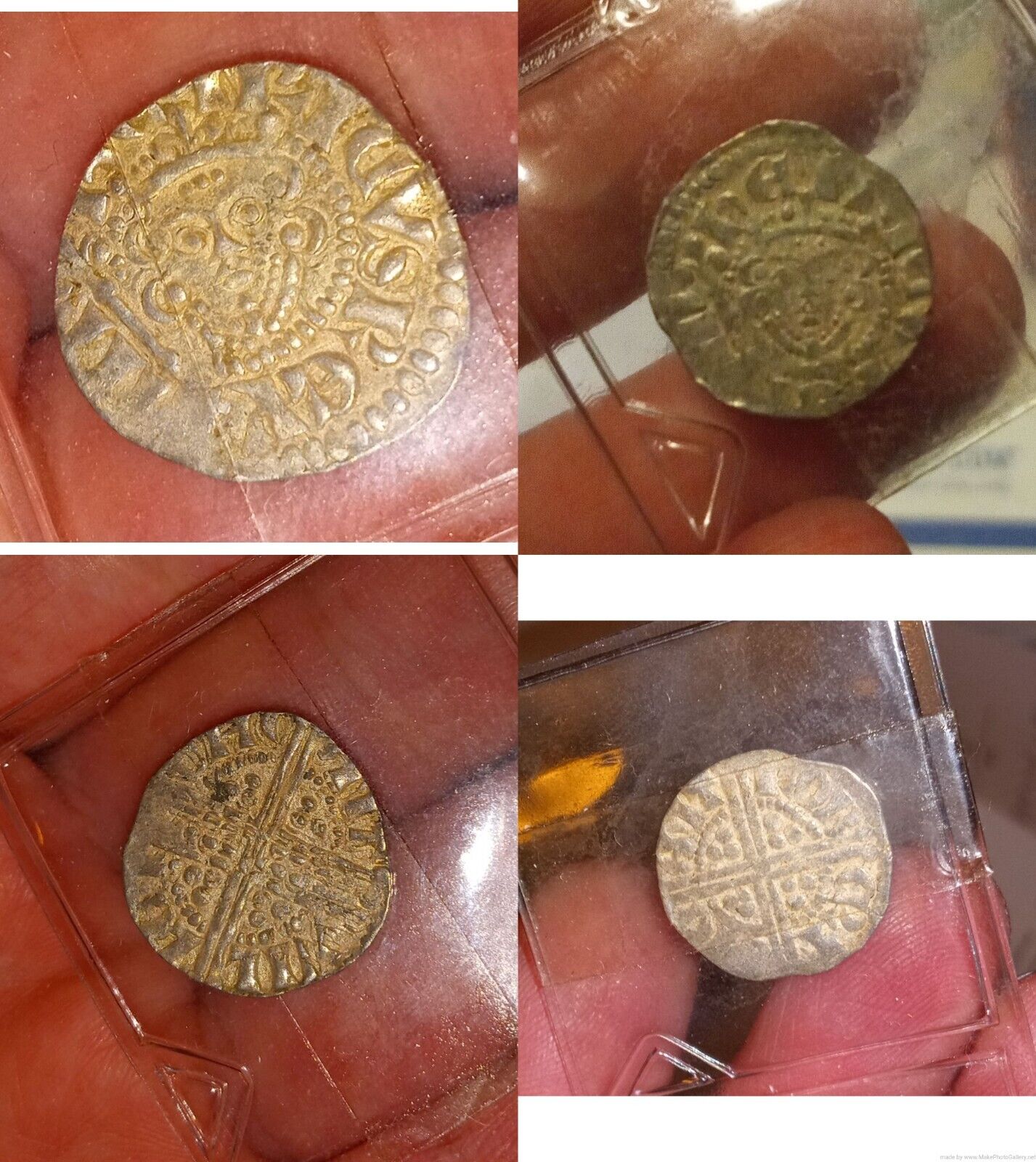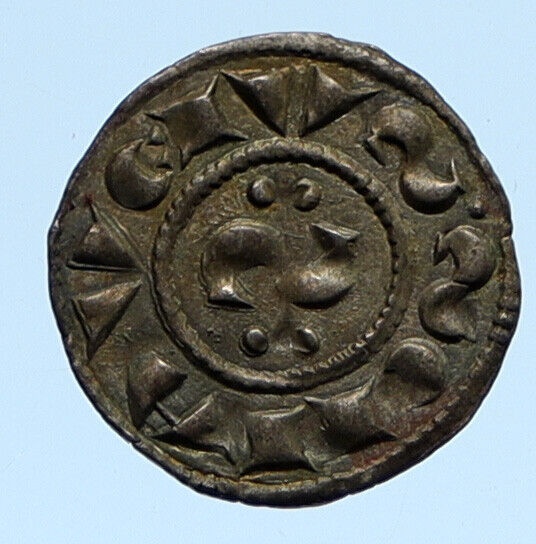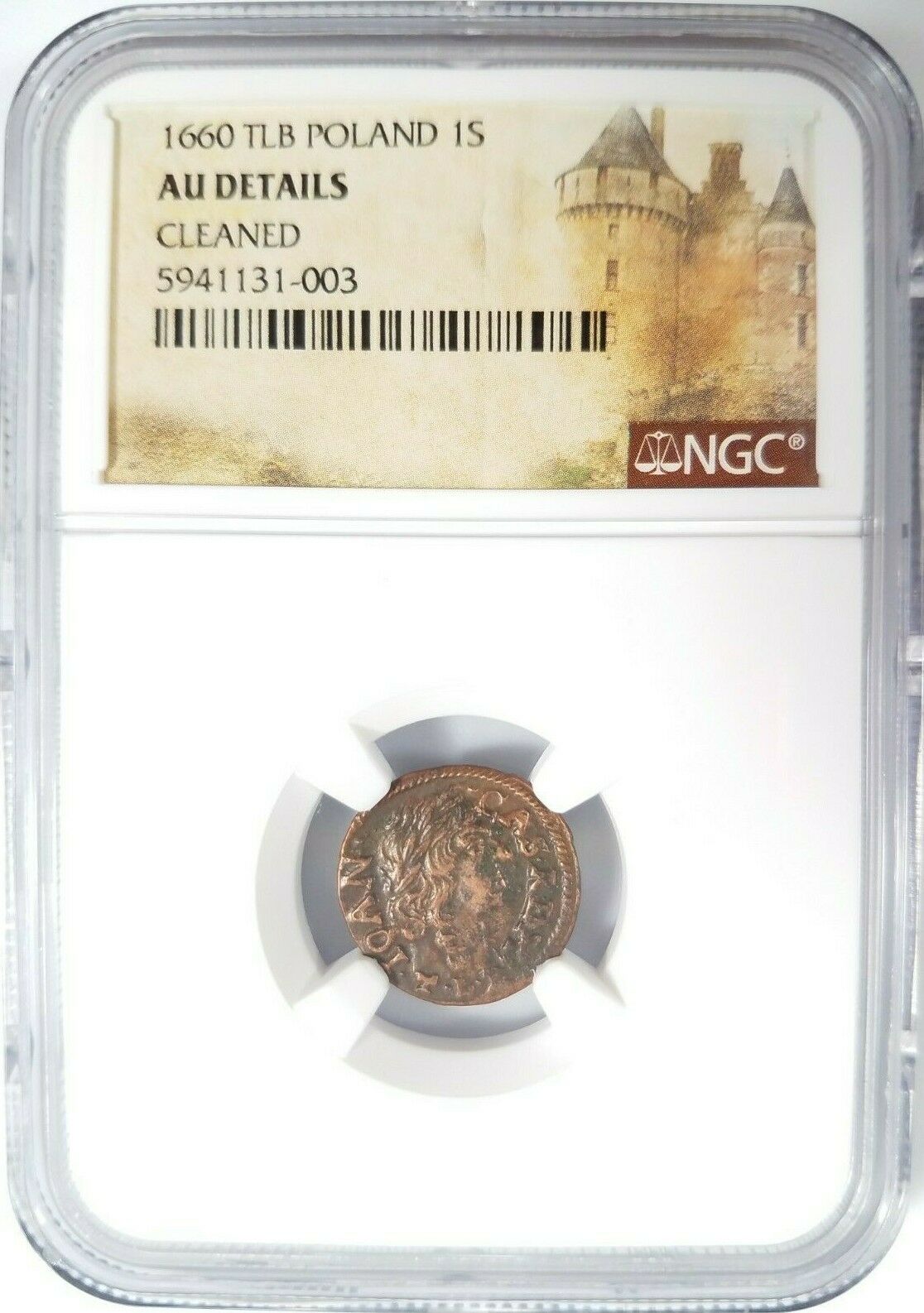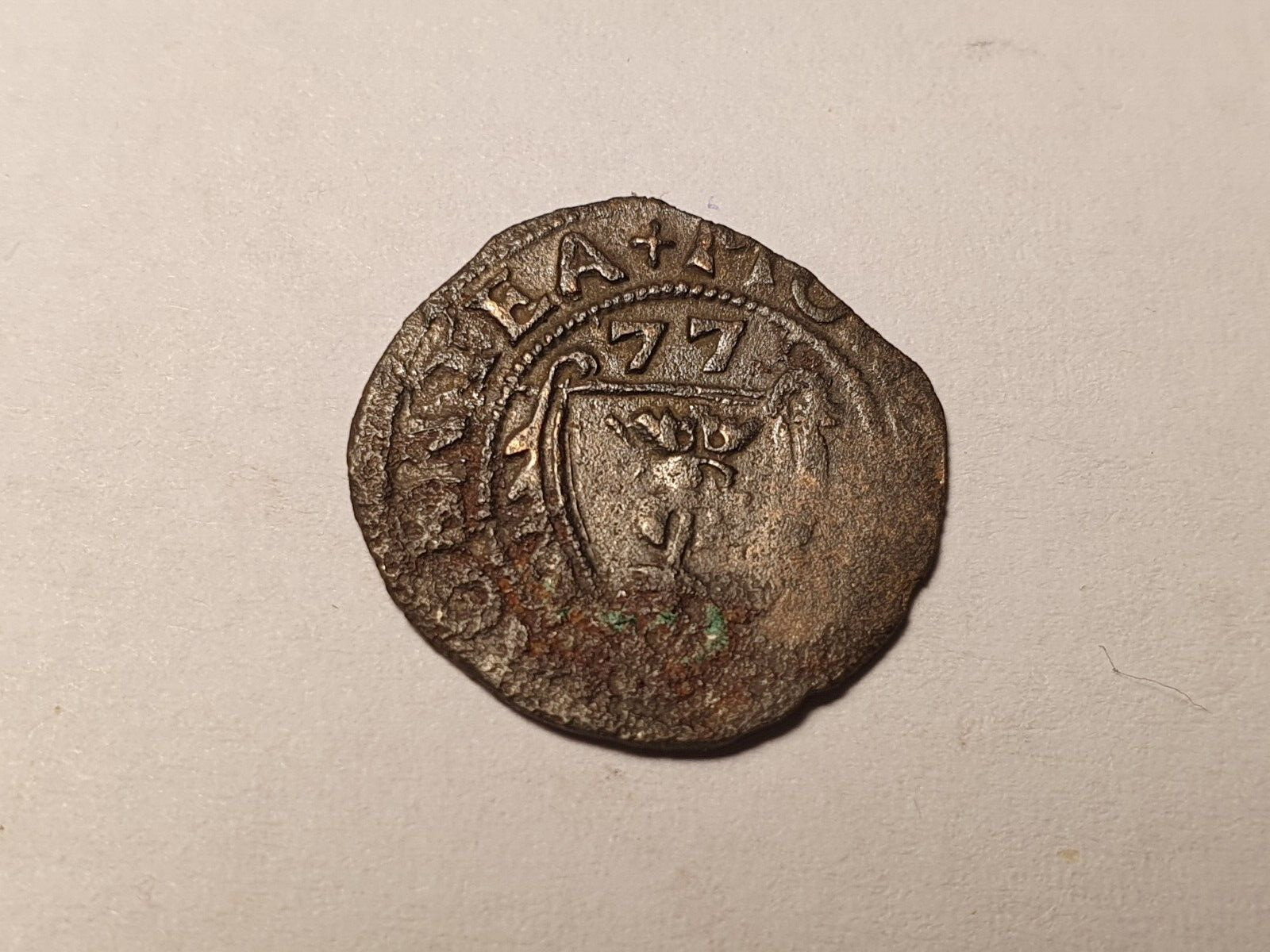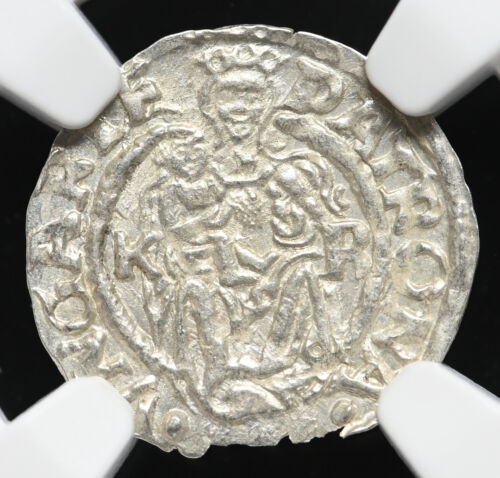-40%
Coin King Of Spain ALFONSO XII Crowned Coat Of Arms On Reverse 5 Centimos
$ 12.67
- Description
- Size Guide
Description
<div style="text-align:center"><img src="https://ti2.auctiva.com/sw/java.gif" border="0"><br><table align="center"><tr><td><a style="text-decoration:none" href="https://emporium.auctiva.com/timelessthing" target="_blank"><img src="https://ti2.auctiva.com/sw/browse2.gif" border="0"></a></td><td height="21px" valign="middle" align="center"><font face="arial" size="2"><b><a href="https://emporium.auctiva.com/timelessthing" target="_blank">timelessthing</a> Store</b></font></td></tr></table></div><img src="https://ti2.auctiva.com/web/aswCredit.gif" border="0"><br><a href="https://www.auctiva.com/?how=scLnk1" target="_blank"><img src="https://ti2.auctiva.com/images/sc1line1.gif" border="0"></a>
Click to view supersize image
Coin of
ALFONSO XII
King of Spain
1874-1885
5 Centimos
Obv: ALFONSO XII POR LA
GRACIA DE DIOS
Bust of Alfonso XII right
Rev: REY CONST DE ESPANA
DIEZ CENTIMOS
Crowned coat of arms within springs
25.00 mm
PRIVATE
ANCIENT COINS COLLECTION
SOUTH FLORIDA ESTATE SALE
( Please, check out other ancient coins we have available for sale. We are offering 1000+ ancient coins collection)
ALL COINS ARE GENUINE
LIFETIME GUARANTEE
AND PROFESSIONALLY ATTRIBUTED
The attribution label is printed on archival museum quality paper
An interesting coin of Alfonso XII,- the King of Spain. The coat of arms on reverse. This coin comes with a free display case, easel and attribution label attached.
The attribution label is printed on archival museum quality paper.
A great way to display a coin collection! You are welcome to ask any questions prior buying or bidding. We can ship it anywhere within continental U.S. for a flat rate of 6.90$. It includes shipping, delivery confirmation and packaging material.
Limited Time Offer:
FREE SHIPPING
(only within the continental U.S.)
The residents of HI/AK/U.S. Territories and International bidders/buyers must contact us for the shipping quote before bidding/buying
ALFONSO XII
King Of Spain
Alfonso XII (Spanish: Alfonso Francisco de Asís Fernando Pío Juan María de la Concepción Gregorio Pelayo; English: Alphonse Francis of Assisi Ferdinand Pius John Mary of the Conception Gregory Pelagius) (28 November 1857, in Madrid – 25 November 1885, in El Pardo) was King of Spain, reigning from 1874 to 1885, after a coup d'état restored the monarchy and ended the ephemeral First Spanish Republic.
Having been forced into exile after the Glorious Revolution deposed his mother Isabella II from the throne in 1868, Alfonso studied in Austria and France. His mother abdicated in his favour in 1870, and he returned to Spain as king in 1874 following a military coup. Alfonso died aged 27 in 1885, and was succeeded by his unborn son, who became Alfonso XIII on his birth the following year.
Alfonso was the eldest son of Queen Isabella II of Spain. Officially, his father was her husband Francis, Duke of Cádiz. Alfonso's biological paternity is uncertain: there is speculation that his biological father may have been Enrique Puigmoltó y Mayans (a captain of the guard). These rumours were used as political propaganda against Alfonso by the Carlists.
His mother's accession created the second cause of instability, which was the Carlist Wars. The supporters of the Count of Molina as king of Spain rose to have him enthroned. In addition, within the context of the post-Napoleonic restorations and revolutions which engulfed the West both in Europe and the Americas, both the Carlistas as well as the Isabelino conservatives were opposed to the new Napoleonic constitutional system. Much like in Britain, who subtracted itself from the liberal constitutional process, Spanish conservatives wanted to continue with the Traditional Spanish Organic Laws such as the Fuero Juzgo, the Novísima Recopilación and the Partidas of Alfonso X. This led to the third cause of instability of worth, the "Independence of the American Kingdoms", recognized between 1823 and 1850.
When Queen Isabella and her husband were forced to leave Spain by the Revolution of 1868, Alfonso accompanied them to Paris. From there, he was sent to the Theresianum at Vienna to continue his studies. On 25 June 1870, he was recalled to Paris, where his mother abdicated in his favour, in the presence of a number of Spanish nobles who had tied their fortunes to that of the exiled queen. He assumed the title of Alfonso XII, for although no King of united Spain had borne the name "Alfonso XI", the Spanish monarchy was regarded as continuous with the more ancient monarchy represented by the 11 kings of Asturias, León and Castile also named Alfonso.
After Amadeo's abandonment in 1873, Parliament declared the Federal Republic (including Cuba, Puerto Rico and the Pacific Archipelagos), the first act of President Estanislao Figueras was to extend the Abolition Act to Puerto Rico. Cuban slaves would have to wait until 1889.
But the republicans were not in agreement either, and they had to contend with the War in Cuba, Muslim uprisings in Spanish Morocco and the continuance of the Carlist Wars. This led to the creation of a group in favor of the Bourbon restoration, made by some sectors of the moderates led by Canovas del Castillo.
The Prince of Asturias, Alfonso, was the person chosen to develop the new road map proposed by Canovas, which led to the June 1870 abdication of Queen Isabel II in favour of her son Prince Alfonso. The new road map which indeed ended the eternal crisis begun in 1810 was called 'Alfonsismo' and the moderate centrist Cánovas del Castillo became the spokesman. As having Alfonso in Spain, would be a problem Cánovas became responsible for his education. So, he sent Alfonso to the Sandhurst Military Academy in England, where the training Alfonso received was severe but more cosmopolitan than Spain, given the current atmosphere.
In 1 December 1874, Alfonso issued the Sandhurst Manifesto, where he set the ideological basis of the Bourbon Restoration. It was drafted in reply to a birthday greeting from his followers, a manifesto proclaiming himself the sole representative of the Spanish monarchy. At the end of 1874, Brigadier Martínez Campos, who had long been working more or less openly for the king, led some battalions of the central army to Sagunto, rallied to his own flag the troops sent against him, and entered Valencia in the king's name.[citation needed] Thereupon the President resigned, and his power was transferred to the king's plenipotentiary and adviser, Antonio Cánovas. The 29 December 1874 military coup of Gen. Martinez Campos in Sagunto ended the failed republic and meant the rise of the young Prince Alfonso.
Within a few days after Canovas del Castillo took power as Premier, the new king, proclaimed on 29 December 1874, arrived at Madrid, passing through Barcelona and Valencia and was acclaimed everywhere (1875). In 1876, a vigorous campaign against the Carlists, in which the young king took part, resulted in the defeat of Don Carlos and the Duke's abandonment of the struggle.
Initially led by Canovas del Castillo as moderate prime minister, what was thought at one time as a coup aimed at placing the military in the political-administrative positions of power, in reality ushered in a permanent civilian regime that lasted until the 1931 Second Republic. Cánovas was the real architect of the new regime of the Restoration.
In order to eliminate one of the problems of the reign of Isabel II, the single party and its destabilizing consequences, the Liberal Party was allowed to incorporate and participate in national politics, and the 'turnismo' or alternation was to become the new system. Turnismo would be endorsed in the Constitution of 1876 and the Pact of Pardo Palace (1885). It meant that a liberal and conservative prime ministers would succeed each other ending thus the troubles.
This led to the end of the Carlist revolts and the victory over the New York-backed Cuban revolutionaries, and led to a huge backing both by insular and peninsular Spaniards of Alfonso as a wise and able king.
Alfonso's short reign established the foundations for the final socioeconomic recuperation of Spain after the 1808–1874 crisis. Both European (the coastal regions, such as the Basque Country, Catalonia, and Asturias) and Overseas – Antilles and Pacific were able to grow steadily. Cuba and Puerto Rico prospered to the point that Spain's first train was between Havana and Camaguey, and the world's first telegraph was in Puerto Rico, as Samuel Morse lived there with his daughter, married to a Puerto Rican businessman. Upon the American invasion of Puerto Rico, 10 US dollars were needed to buy 1 Puerto Rican peso.
On 23 January 1878 at the Basilica of Atocha in Madrid, Alfonso married his first cousin, Princess Maria de las Mercedes, daughter of Antoine, Duke of Montpensier, but she died within six months of the marriage.
On 29 November 1879 at the Basilica of Atocha in Madrid, Alfonso married a much more distant relative, Maria Christina of Austria, daughter of Archduke Karl Ferdinand of Austria and of his wife Archduchess Elisabeth of Austria. During the honeymoon, a pastry cook named Otero fired at the young sovereign and his wife as they were driving in Madrid.
The children of this marriage were:
María de las Mercedes, Princess of Asturias, (11 September 1880 – 17 October 1904), married on 14 February 1901 to Prince Carlos of Bourbon-Two Sicilies, and titular heiress from the death of her father until the posthumous birth of her brother
María Teresa, (12 November 1882 – 23 September 1912), married to Prince Ferdinand of Bavaria on 12 January 1906
Alfonso XIII (17 May 1886 – 28 February 1941). Born posthumously. He married Princess Victoria Eugenie of Battenberg
In 1881 Alfonso refused to sanction a law by which the ministers were to remain in office for a fixed term of 18 months. Upon the consequent resignation of Canovas del Castillo, he summoned Práxedes Mateo Sagasta, the Liberal leader, to form a new cabinet.
In November 1885, Alfonso died, just short of his 28th birthday, at the Royal Palace of El Pardo. He had been suffering from tuberculosis, but the immediate cause of his death was a recurrence of dysentery.[2]
In 1902, his widow Maria Cristina initiated a national contest to build a monument in memory of Alfonso. The winning design, by José Grases Riera, was erected in an artificial lake in Madrid's Parque del Buen Retiro in 1922.
Coming to the throne at such an early age, Alfonso had served no apprenticeship in the art of ruling, but he possessed great natural tact and a sound judgment ripened by the trials of exile. Benevolent and sympathetic in disposition, he won the affection of his people by fearlessly visiting districts ravaged by cholera or devastated by earthquake in 1885. His capacity for dealing with men was considerable, and he never allowed himself to become the instrument of any particular party. During his short reign, peace was established both at home and abroad, finances were well regulated, and the various administrative services were placed on a basis that afterwards enabled Spain to pass through the disastrous war with the United States without the threat of a revolution.
SHIPPING INFO:
- The Shipping Charge is a flat rate and it includes postage, delivery confirmation, insurance up to the value (if specified), shipping box (from 0.99$ to 5.99$ depends on a size) and packaging material (bubble wrap, wrapping paper, foam if needed)
- We can ship this item to all continental states. Please, contact us for shipping charges to Hawaii and Alaska.
- We can make special delivery arrangements to Canada, Australia and Western Europe.
- USPS (United States Postal Service) is the courier used for ALL shipping.
- Delivery confirmation is included in all U.S. shipping charges. (No Exceptions)
CONTACT/PAYMENT INFO:
- We will reply to questions & comments as quickly as we possibly can, usually within a day.
- Please ask any questions prior to placing bids.
- Acceptable form of payment is PayPal
REFUND INFO:
- All items we list are guaranteed authentic or your money back.
- Please note that slight variations in color are to be expected due to camera, computer screen and color
pixels and is not a qualification for refund.
- Shipping fees are not refunded.
FEEDBACK INFO:
- Feedback is a critical issue to both buyers and sellers on eBay.
- If you have a problem with your item please refrain from leaving negative or neutral feedback until you have made contact and given a fair chance to rectify the situation.
- As always, every effort is made to ensure that your shopping experience meets or exceeds your expectations.
- Feedback is an important aspect of eBay. Your positive feedback is greatly appreciated!
Click to view supersize image
.
Click to view supersize image
.
Click to view supersize image
<div style="text-align:center"><a style="text-decoration:none" href="https://mostpopular.sellathon.com/?id=AC1019108"><img src="https://www.sellathon.com/Resources/Images/countercredit.gif" border="0"></a></div>
